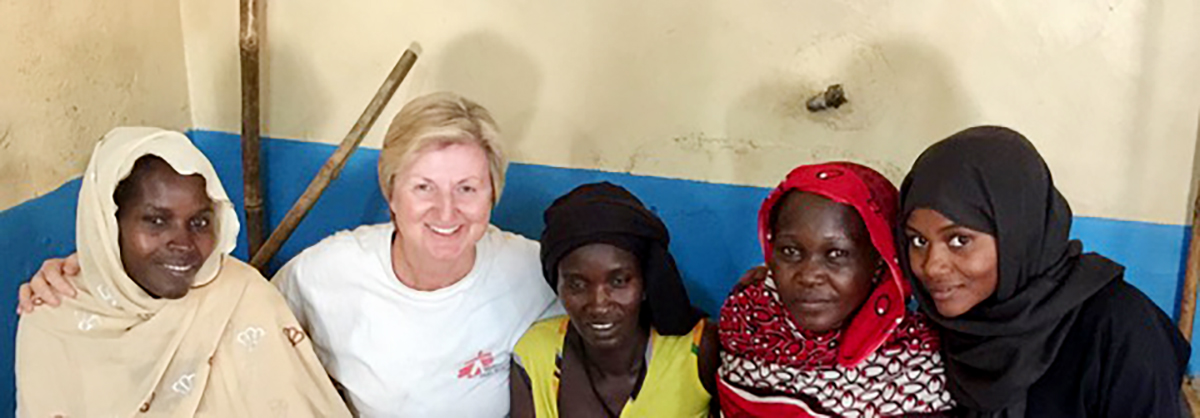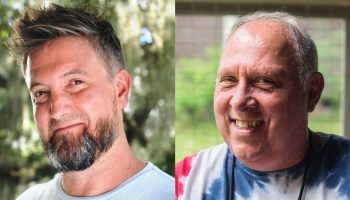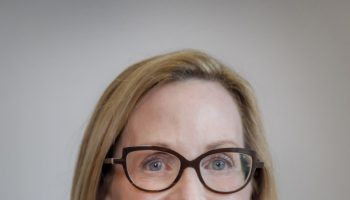The world’s newest country is the landlocked Republic of South Sudan in northeastern Africa.
South Sudan gained its independence from Sudan in July 2011, after nearly five decades of civil war following decolonization. Within two years, fighting between the new government and rebel forces began. Since then, war and ethnic violence have created a humanitarian crisis.
In the year before its independence, over half the population of what is now South Sudan was living below the national income poverty line and nearly 70 percent were in “severe multidimensional poverty,” according to the UN Development Programme’s Human Development Reports. Since then, this trend has worsened.
OB-GYN physician Jeanne Wiebenga learned about South Sudan’s health care system firsthand. For several weeks in January and February, she joined a Médecins Sans Frontières (Doctors Without Borders) project in the city of Aweil in northwestern South Sudan, not far from its border with the Republic of Sudan.
At 9:15 a.m. Thursday at the Chautauqua Women’s Club, Wiebenga will discuss her experience. Her presentation, “Working with Doctors Without Borders: A Mission to South Sudan,” will conclude the CWC’s 2017 Chautauqua Speaks program.
MSF’s mission is “Medical aid where it is needed most. Independent. Neutral. Impartial.” It has been providing medical humanitarian assistance to South Sudan since the country’s independence, and to Sudan since 1979. As of July, there were 14 MSF operations in South Sudan, most of which were located in the north. An operation in the northeast — two mobile units and a field hospital — was temporarily suspended in late April when fighting displaced nearly 25,000 people.
Among the causes of South Sudan’s high poverty rate are food insecurity — caused by war and drought, leading to this year’s famine — as well as illiteracy, especially among females; insufficient access to safe water; and inadequate health care.
Wiebenga said that MSF-USA recruited her to work as the OB-GYN at the French-run Aweil State Hospital Maternity in northwestern South Sudan. It is the only referral hospital in what was called Northern Bahr el Ghazal state prior to the country’s reorganization in 2015.
“We were a group of 25 coming from 10 different countries,” Wiebenga said. “We lived in an enclosed compound covered with barbed wire and couldn’t really go out. We had to be in the compound or you could walk to work with a group. You could never walk alone. You always had to have your MSF shirt on.”
As a “highly respected group,” the medical team were “completely safe, with no fear at all,” Wiebenga said. They could not leave the compound or hospital, however, and at night were transported by van.
“If you violated any of these things, you were out the door,” she said. “They’re very strict.”
A year ago, South Sudan’s rate of maternal mortality was the fifth highest in the world, according to World Bank data.
Thanks in large part to MSF physicians like Wiebenga and the South Sudanese midwives with whom she worked, the country’s 789 deaths per 100,000 live births in 2016 were a significant improvement over 2006, when, according to South Sudan Medical Journal, it led the world in maternal mortality, with 2,054 deaths per 100,000 live births.
“There are so many life-and-death situations,” Wiebenga said. “That is the great adrenaline push, and it’s also the great excitement and the great satisfaction.”
Wiebenga’s experience in South Sudan was not her first medical experience in Africa, and Africa is not the only continent on which she has served deprived populations. Almost from the get-go, her primary interest was working with the underserved.
Born and raised in the Netherlands, Wiebenga earned her medical degree at Leiden University Faculty of Medicine. She said that three years of rotating internships prepared her for practicing in Ghana as part of a Dutch government program that sponsored physicians in Africa.
“A lot of our medical graduates — about a third of them — after medical school, did … rotating internships,” Wiebenga said. “This was before the time that people did actual residencies. We rotated through medicine, OB-GYN, surgery and pediatrics, and then they sent us out to the country of our choice in Africa.”
Because a friend who was working at Holy Family Hospital in Berekum said, “Come, we have a wonderful medical director; she’s a great teacher,” Wiebenga chose Ghana, on the west coast of central Africa. She said she was “feeling pretty new” — especially in Africa, where there would not be many people to take care of her if needed — so she wanted to work with someone who could teach her.
Wiebenga remained in Ghana for three and a half years. Her teacher was Jane Stirniman, a surgeon and emergency medicine physician from Iowa who would later become her longterm partner and fellow traveler.
“Then I went back to the Netherlands and wanted to become an OB-GYN because I saw the need for maternal health in (Africa),” Wiebenga said.
She pursued this part of her medical training in the United States. Before completing a four-year residency in obstetrics and gynecology at SUNY Buffalo, however, she earned a master’s in public health at Harvard University.
Upon returning to the Netherlands, Wiebenga said the Dutch government asked her to go to Malawi, in southeast Africa, as a senior OB-GYN doctor.
There she worked with three other ex-pats at Queen Elizabeth Central Hospital, “a large government hospital in the beautiful old colonial city of Blantyre.” She said that at the time, 1989 to 1992, Malawi was one of the poorest countries in Africa, with an incredibly high HIV/AIDS rate.
With two others, Wiebenga wrote an article for Tropical and Geographical Medicine in July 1992, “AIDS and Women’s Health Care in Developing Countries.” Three months earlier, Malawi Medical Journal had published her article, “Maternal Mortality at Queen Elizabeth Central Hospital, 1989 to 1990.”
In 1992, Wiebenga received her green card, enabling her to permanently live and work in the United States. Settling in the Chautauqua area, she joined a private practice in Jamestown — Lane Women’s Health Group — where she practiced for 10 years.
During the past 15 years, Wiebenga has continued providing OB-GYN medical care to underserved populations.
In the United States, she has practiced in Arizona with the Indian Health Service and Navajo Nation, and in northern Virginia at two hospitals serving South American immigrants.
Intermittently, for two to five months at a time and a total of five times between 2003 and 2008, Wiebenga was part of the senior OB-GYN staff at the Alaska Native Medical Center, which is based in Anchorage.
“From there we flew to remote places like Kotzebue and Bethel,” she said.
For three months in 2003, and for nearly two years from 2006 to 2008, Wiebenga treated Aboriginal women while serving as senior OB-GYN staff at Cairns Base Hospital in Queensland, Australia.
In each of these places, Wiebenga said that she also worked for one to two weeks at a time in remote outreach communities.
During the past two years, Wiebenga has practiced part-time at Jamestown’s WCA Hospital. She said that there has been a substantial increase in unemployment since she was in private practice from 1992 to 2002.
Many of Wiebenga’s current patients are on Medicaid. She said that the state of health of the women she has been seeing at the WCA is “horrendous.” So much so, that nothing in her experience elsewhere compares to it, not even South Sudan.





